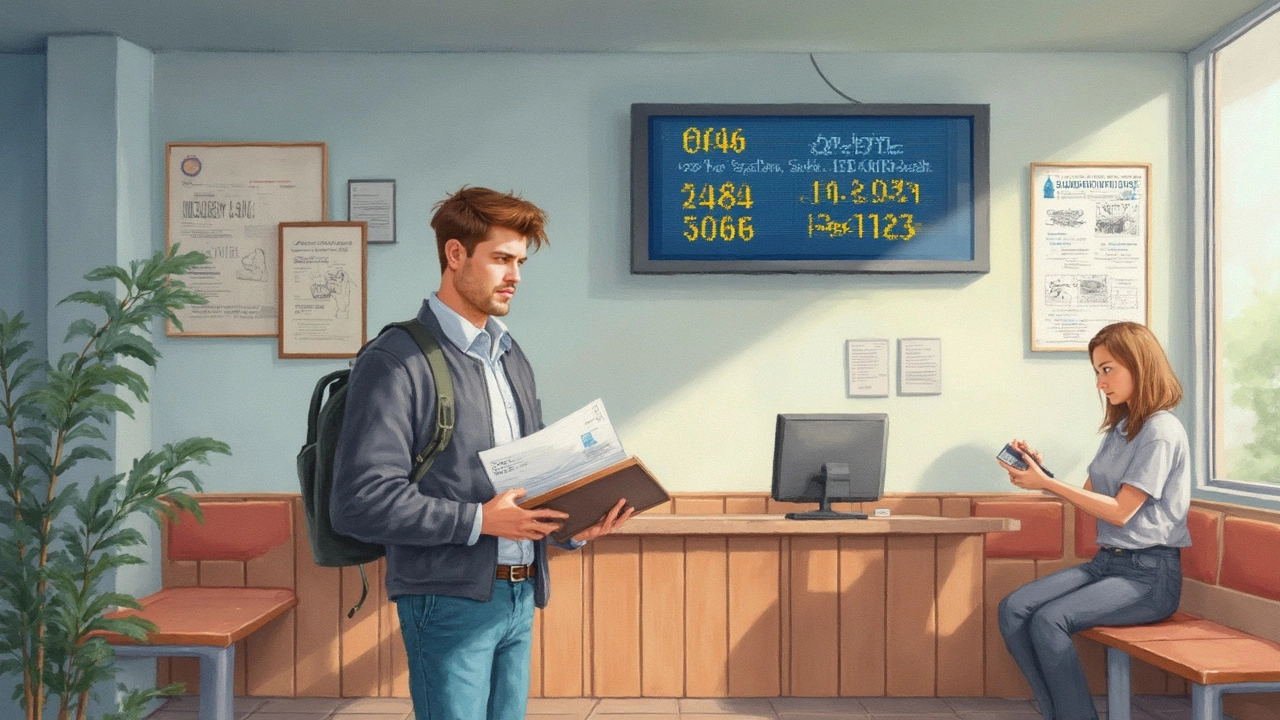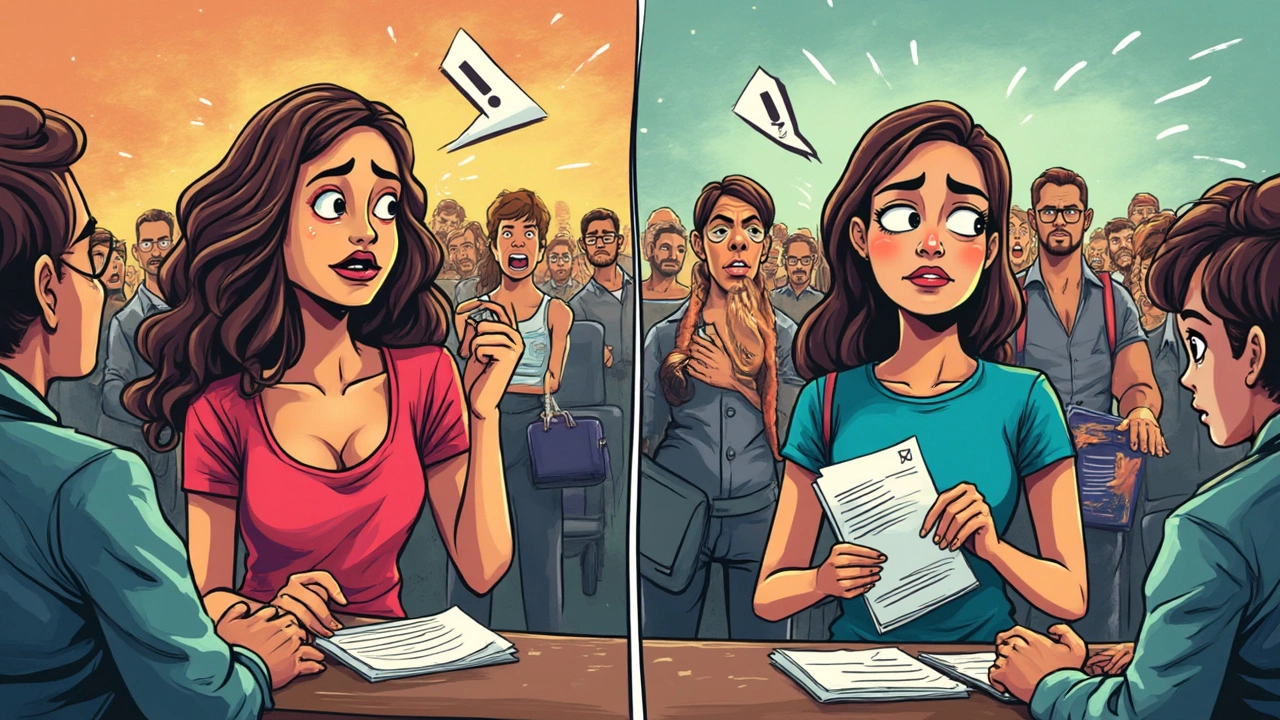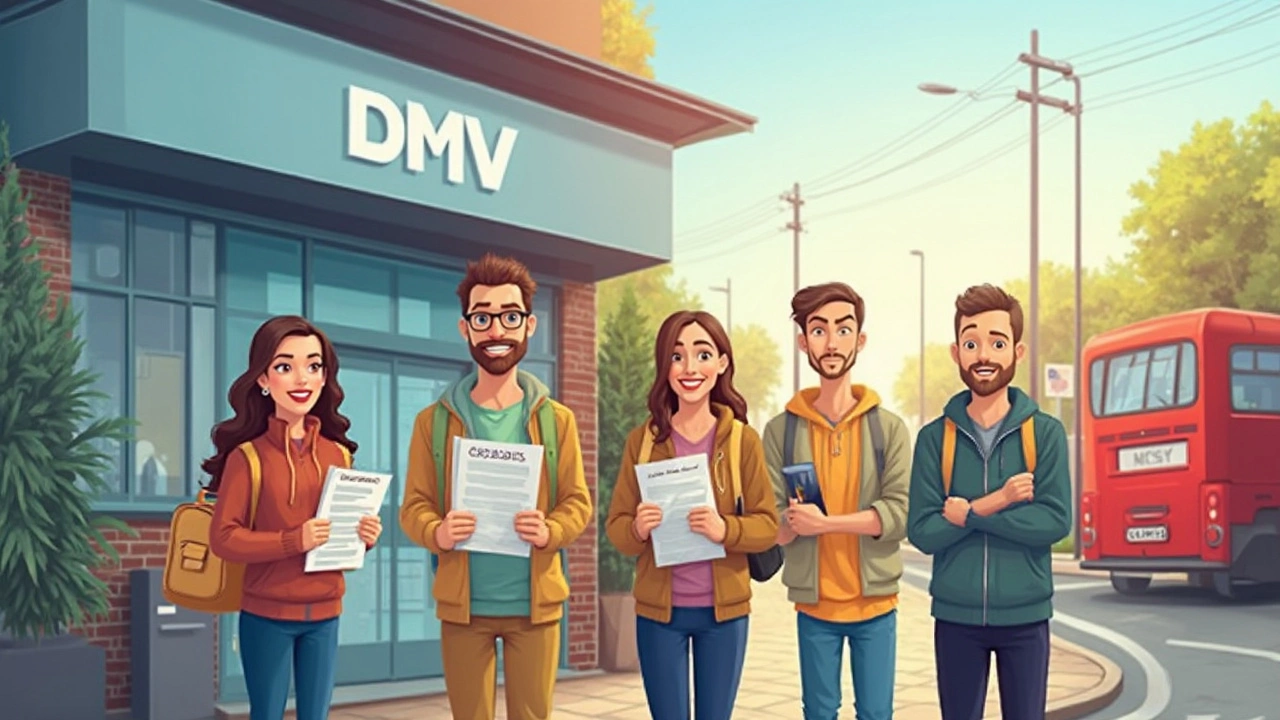Showing up at the Virginia DMV without the right stuff is a sure way to waste your morning. DMV lines are bad enough—don't make them longer by forgetting a key document.
When you're renewing your Virginia license, there's an exact checklist. It can honestly trip people up, especially if it's been years since your last visit or if you've moved, changed your name, or lost your old license. Basically, the DMV wants proof you are who you say, you live where you claim, and—yep—you're legally in the country.
If you're even a little unsure what counts as a valid proof, this guide has your back. You'll get the real-life version of the DMV's list, translated into normal language, with a heads-up about what actually works (and what's likely to get you turned away).
Time to get into the nitty-gritty about what you absolutely need to bring—and a couple smart moves that can save you a bunch of hassle while you’re at it.
- License Renewal: Basic Requirements
- What Documents Do You Need?
- Pro Tips to Shorten Your DMV Visit
- What to Do If You're Missing Paperwork
- Top Mistakes to Avoid
License Renewal: Basic Requirements
First things first: you need to renew your Virginia driver’s license before it expires, or you risk fines and legal trouble if you get pulled over. The Virginia DMV usually lets you renew up to a year before your expiration date, and you can find this info printed right on your current license.
The easiest way is to renew your license online or by mail, but not everyone is eligible for that. If you’ve changed your name, lost your license, or need a new Real ID, you’ll have to renew in person. That means a trip to the DMV with paperwork in hand.
Here’s what you need to know for license renewal at a Virginia DMV in 2025:
- Your current or most recently issued Virginia driver’s license, even if it’s expired (but not more than a year past its expiration—otherwise you have extra hoops to jump through).
- Proof of legal presence in the U.S. (like a birth certificate, valid U.S. passport, or a green card).
- Two forms to prove your Virginia residency. Common choices are a utility bill, bank statement, or lease agreement, but you can also use a payroll check or voter card if it shows your address.
- Proof of your Social Security number (your SSN card works, but you can also use a W-2 or 1099 tax form).
- Payment for the renewal fee. In 2025, a standard 8-year license renewal costs $32, but prices can vary if you upgrade to a Real ID or want a shorter term.
If you’re not a U.S. citizen, there are other specific documents you’ll need to show, so it’s smart to look up your exact situation before heading out. Pro tip: Real ID is now required for domestic flights and some federal buildings; consider upgrading during renewal if you don’t already have it.
Here’s a quick look at what people usually bring for proof:
| Proof Needed | Examples |
|---|---|
| Legal Presence | Birth certificate, U.S. Passport, Green card |
| Virginia Residency (2 docs) | Utility bill, Lease, Bank statement |
| Social Security Number | SSN card, W-2, 1099 |
And just a heads up: if you show up with documents that don’t match your current name or info, DMV may ask for extra proof, like a marriage certificate or a court order for name change. Showing up prepared can make renewing your license a quick and painless stop.
What Documents Do You Need?
If you want your DMV visit in Virginia to be quick and smooth, your documentation has to check out. The proof they want is pretty standard, but if you miss even one, you’re risking a wasted trip.
Here’s what Virginia asks for when you renew your driver’s license in person (if you’re eligible to renew online or by mail, the list is usually shorter):
- Current Virginia Driver’s License: This shows you’re already in the system. If you lost yours, they’ll need extra ID, so bring as much as you can from the rest of this list.
- Proof of Identification: Most folks use a valid passport or a certified U.S. birth certificate. Permanent residents can use their resident card. Make sure it’s the original document, not a photocopy.
- Proof of Virginia Residency: You need two separate documents. Good bets are recent utility bills, mortgage or lease agreements, or even a bank statement with your name and current address. The DMV website has a full list, but the main idea: both docs must show your name and your up-to-date Virginia address.
- Proof of Social Security Number: Your Social Security card works best, but things like a W-2 form or a 1099 will do. What’s key is the number should match the DMV’s records.
If you’ve changed your name since your last renewal (say, after marriage or divorce), bring the marriage certificate, divorce decree, or legal name change paperwork. The DMV can get very picky if your name doesn’t match everywhere, so double-check.
Here’s a quick view of the basic requirements:
| Requirement | Common Documents |
|---|---|
| Identification | US Passport, Birth Certificate |
| Virginia Residency | Utility Bill, Lease Agreement |
| Social Security | Social Security Card, W-2/1099 |
| Legal Name Change (if needed) | Marriage Certificate, Court Order |
Coming prepared with these is your best shot at skipping the "come back another day" speech. And double-check expiration dates—expired paperwork gets you nowhere.

Pro Tips to Shorten Your DMV Visit
If you want to get in and out of the DMV without losing your whole day, you need a game plan. Most people don’t realize you can hack your DMV trip with some simple prep—no magic needed, just a bit of know-how.
Here’s what you should do:
- Book your appointment online. The Virginia DMV lets you schedule many visits ahead. Walk-ins almost always wait longer. Some locations fill up days in advance, so book as soon as you know you need to go.
- Double-check the checklist. Seriously, review the required documents on the DMV’s official site the day before. They sometimes update their list, and you don’t want a surprise at the desk.
- Photocopy everything. Bring originals and make copies of your ID, proof of residency, and insurance. Sometimes a less-experienced clerk might appreciate or even ask for backup copies.
- Avoid Mondays and lunchtime. The DMV is busiest on Mondays, Fridays, and during lunch. Early mornings right when they open or mid-afternoon (before the after-work crowd) are usually quickest.
- Check DMV “wait time” tools. Some Virginia DMV locations offer real-time wait info on their site. You can see which branch has the shortest line before you commit.
- Use their digital renewal if possible. If you just need a basic renewal and qualify, you can skip the trip altogether and use the DMV’s online system.
For a quick peek at Virginia DMV average wait times by day and time, here’s what the stats looked like in 2024:
| Day | Average Wait Time |
|---|---|
| Monday | 42 minutes |
| Wednesday | 22 minutes |
| Friday | 38 minutes |
Bumping your errand to Wednesday morning could honestly cut your visit in half. And always triple-check your paperwork before you leave the house—forgotten documents are the #1 cause of wasted trips to the DMV in Virginia.
Take these simple steps and your DMV visit will feel like a breeze instead of a chore.
What to Do If You're Missing Paperwork
So you’ve shown up at the DMV in Virginia and realize you’re missing a must-have document. Don’t panic—lots of people run into this. There are a few solid ways to salvage the situation without making another trip.
First, check if you can pull up electronic documents. The Virginia DMV accepts some documents electronically, like a mortgage statement or utility bill, as long as the info is clear. If you have your phone or can access your email, you might be able to find what you need on the spot.
If that doesn't work, see if a friend or family member can email or fax missing proof directly to the DMV office while you’re there. Many DMV counters have fax numbers posted, or a staff member can help you out.
- If you’re missing proof of residency, see if old bank statements, official letters, or even a voter card are tucked in your wallet or email.
- For missing government-issued IDs, check if you can log into a state or federal website and print a temporary ID or save a digital copy—some agencies offer this.
- If it’s proof of legal presence you’re missing, like a birth certificate or passport, you’ll probably have to leave and return. But, you can sometimes order certified copies online with rush service. Expedited shipping can also cut down the wait time, and many counties let you pick up records in person the same day.
Not sure whether your substitute document will fly? Before getting back in line, ask a DMV employee. They’ll review what you have on hand and let you know if it’s enough or if you simply have to come back. They see all kinds of paperwork all day and usually appreciate when you double-check with them before wasting your time.
Here’s a quick snapshot of common ways folks make up for missing documents while already at the DMV:
| Missing Item | Quick Fixes That Sometimes Work |
|---|---|
| Proof of Address | Email a recent bill or bank statement to yourself |
| Photo ID | See if you have a digital copy in Apple Wallet or Google Pay |
| Legal Presence | Rush order a replacement birth certificate online |
If you just can’t get what you need before closing time, don’t sweat it—your partially filled application stays in the DMV system for a few days. You usually don’t have to start all over, just come back when you’ve got everything lined up.

Top Mistakes to Avoid
Renewing your license at the Virginia DMV can feel like running an obstacle course if you don’t know the biggest pitfalls. Here are some of the most common mistakes folks make, and how you can avoid falling into the same traps.
- Forgetting required documents: The number one reason people have to make a second trip is missing paperwork. Even one document short, and the DMV staff will send you packing. Always triple-check the DMV’s current list of what you need—especially if requirements change (they sometimes do).
- Showing up with expired or illegible documents: Bringing an expired passport or a bill with your address scratched off won’t pass. The DMV staff are strict: your proofs have to be official, current, and easy to read.
- Relying only on digital copies: The Virginia DMV wants original documents, or certified copies. Flashing your phone with a screenshot of your utility bill just won’t cut it.
- Missing proof of residential address: People often forget this one, thinking their old license is enough. You’ll need one or two recent documents (like bank statements or utility bills)—your old driver’s license by itself won’t satisfy Virginia’s rules.
- Ignoring REAL ID needs: Since May 2025, things have tightened up. Want a REAL ID license? You’ll face a stricter document list for extra security. Check the breakdown on the DMV site before you go.
Quick reminder: DMV staffers hear all the excuses. As one veteran employee put it,
"If you bring every possible document, you’ll save way more time than you’ll ever spend looking for paperwork. You can’t talk your way around what’s missing."
Another unspoken headache: time of day. Mornings before noon are slammed, and Mondays see big crowds. Try midweek, mid-afternoon if you want to breeze through.
| Common Mistake | % of Visitors Affected* |
|---|---|
| Forgetting papers | 38% |
| Expired proof/IDs | 22% |
| No proof of address | 19% |
*Data collected from a 2023 Virginia DMV staff survey.
One last thing: never assume yesterday’s DMV rules are still in play. Always check the DMV site for changes within a week of your appointment. It only takes a minute, and it saves hours of headache if something switched.

